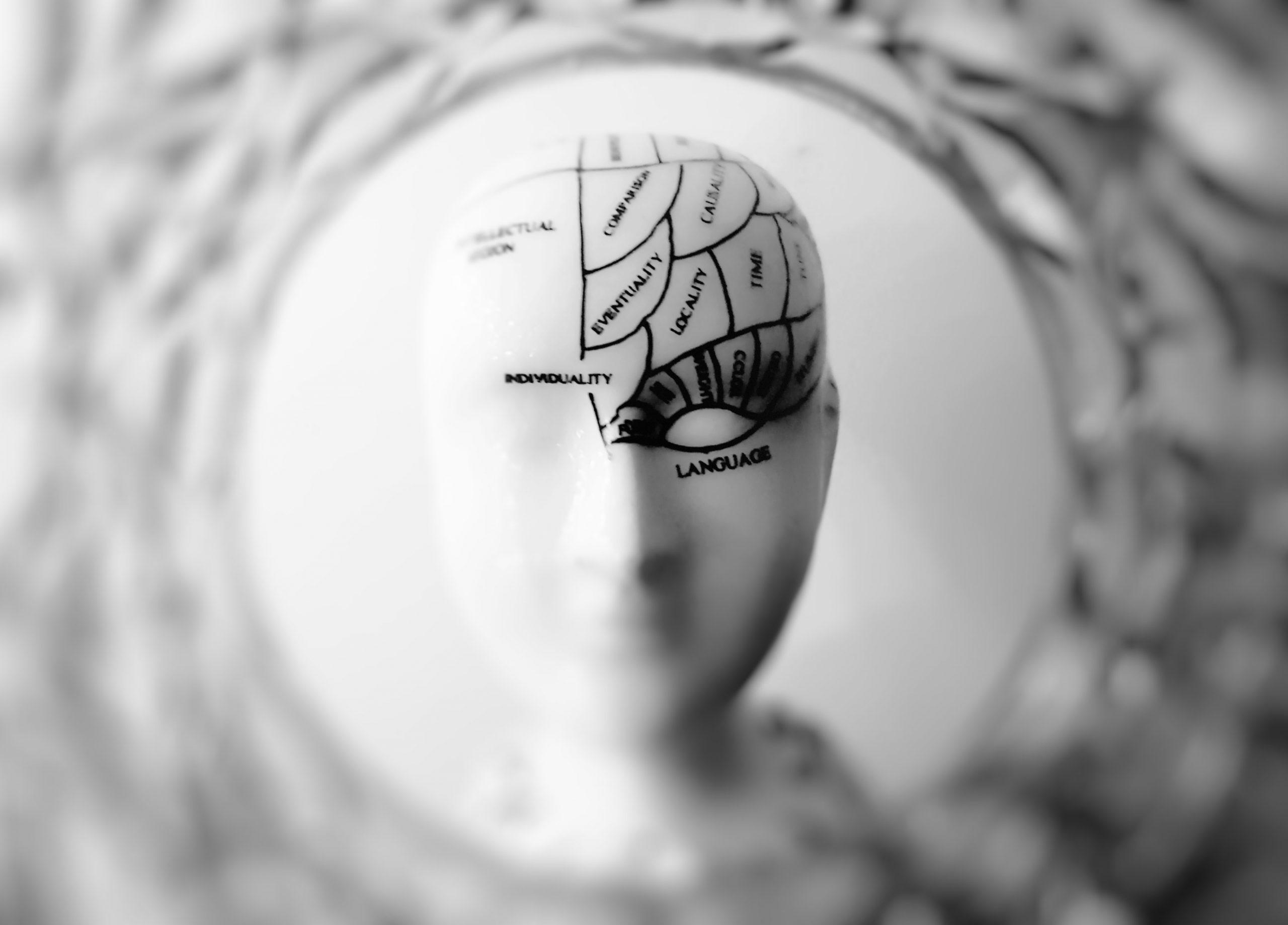Health disorder is the challenge that must be taken care of. The task of achieving a mentally healthy church family is not the task of our pastors alone but involves the collaborative efforts of all stakeholders like the youths, the parents, the leaders in the church, all the heads of units and all the families. We must ensure that we are our brother’s keepers at all times.
We must remember always that our fellowship with God is a major protector of our mental well-being individually and collectively.
From this discussion, it is expected that we would have acquired a high index of suspicion for early cases so that proactive steps can be taken without discrimination. There is no health without mental health.

Unresolved Marital Conflict
When the marriage is persistently undergoing deep conflicts, it affects the proper nurture of children since the environment will be chaotic and distressful for the young minds to grow. There is strong evidence linking this to the development of mental illness among youths either through continuous fights, separation or divorce.
Dysfunctional Family Life
This often is a product of perennial conflict where the couple chooses to stay together but fails to achieve synergy.
This manifests in faulty communication patterns that may get children to indulge in sensual pleasure without appropriate discipline through the indulgence of one of the spouses.
Children may even become scapegoats in the ensuing conflict with grave consequences on their mental health.
Single Parenthood/Absentee Fatherhood
In health disorder, there is a growing population of single parenthood due to separation or divorce, with consequent lack of the balance of the other spouse that is crucial in nurturing the minds of the young ones.
This may also take place in a dysfunctional family where there are skewed marital dynamics and the woman is the dominant figure as the father, though physically present, has no input into the training agenda of the children.
Poor Socioeconomic Situation
When the basic survival needs of a child are not being met for physical and emotional growth, abuse is inevitable as a result of grave deprivation that may invariably affect the growth of the children.
Basic provisions for schooling, a balanced diet, and social expression for a healthy sense of self may not be available with grave consequences on the growing psyche.
Globalization of Values
We live in a global village where foreign values get to shape the development of our children through TV, Smartphones and other social media handles.
Different philosophies abound with everyone canvassing reasons for their choices in such a way that if a well-articulated parenting module is not available, growing children may get distracted and get involved in activities that can injure their minds.
Issues of sexual preference and control, use of psychoactive substances and development of safe boundaries become hazy and the young ones become vulnerable.
Poor Parenting Strategies
Most parents are adopting very obsolete and parochial strategies in managing their children. Parents often also make the mistake of comparing children with one another, thereby inciting sibling rivalry and providing a breeding ground for mental disorders.
Where parents adopt strategies that are not adaptive, rigid and punitive without a positive impact on the development of the mind, in the context of these principles, such children will be prone to mental disorders.
Poor Index of Suspicion
A crucial role of sound parenting is the capacity to not only hear the children but also to listen to them and notice when there are changes in their behaviours.
Most mental disorders don’t start suddenly but develop over time, starting with some minor but significant behaviour change that should be recognised early for professional intervention.
Cultural Handicaps and Stigmatization
Stigma is a big problem in our continent, where individuals who have mental health challenges are viewed as being doomed for life.
This is tied to the supernatural conceptualization of mental illness, which negatively impacts our health-seeking behaviour and informs our poor acceptability of the need for mental health intervention for the affected children.
We prefer to only seek the spiritual approach and neglect the professional pathways of care. This also affects the way we manage and accept such individuals who are being treated by mental health practitioners.
Religiosity vs Spirituality
When a parenting modality is more religious than spiritual, there is a tendency to create cognitive dissonance in the children. Religiosity is a more general way of worshipping God in a group guided by acceptable norms, customs and beliefs.
For the youth growing up and eager to try alternative ways to life, they may challenge the existing viewpoints which may get the parents to react in anger rather than understanding beyond making a case for the group.
This will require that such a parent is informed and also has internalized values that he is espousing to the children. This is the challenge of spirituality over mere religiosity.
Poor Modelling
Youths are not easily challenged by theoretical propositions but by practical demonstrations of values that have been canvassed, where children need to see a practical demonstration of self-control and courage in dealing with the challenges of life, including unethical practices.
This may send a wrong signal to the children as they trust their peer group for guidance rather than parental guidance. This may encourage poor or even maladaptive coping mechanisms that may lead to developing mental disorders.
Peer-Pressure
When the primary socialization scheme is faulty at home and at the beginning of life – the time of youth with all the tendencies to challenge existing paradigms – the concerned youths/adolescents may be empowered by the peer group with an alternative agenda that may lead to the development of mental disorders especially in the abuse of psychoactive substances.
Hereditary/ Biological Factors
Genetic factors are very strong in the development of mental and health disorders. However, it does not mean that once there is a history of mental illness in a family anyone in that family will develop the illness.
There are variable expressions of genetic vulnerability across generations, and the environmental nurture is equally a determining factor in the eventual development of mental disorder.
There are also biological factors linked to the development of certain psychiatric disorders such as the circumstances of birth, such as difficult, prolonged labour, and birth trauma.
Also, certain disease conditions that affect the brain, head injury and growths (tumours) in the brain could predispose to mental disorders. There is always the need for professional consultation and advice in managing these cases.
Physical/ Psychological Abuse
The growing mind of a child is like an empty slate, which is acutely impressionable for good or for bad.
When children undergo some form of abuse whether physical or psychological like rape, child labour, neglect and others, they may grow with a very clear memory of such occurrences affecting their self-esteem and impairing their abilities to adjust to life challenges which may predispose them to abuse psychoactive substances or develop frank psychiatric disorders.
In light of the gravity of mental disorders on the individual, family and society at large, certain proactive steps must be taken to prevent the occurrence of the illness and also to manage them and reintegrate them back into society.
Specific Interventions for Youths’ Mental/Emotional Health Issues
Sound Parenting Strategies
This point cannot be over-emphasized as it remains one of the most important cornerstones in preventing and managing mental disorders. Parenting is not just a science to learn but a spontaneous outcome of the synergy that comes from a healthy marriage. Colossians 3 vs 18-21.
Children are enjoined to obey their parents, not the father separately or the mother separately. The synergy of wives’ submission and the reciprocal love of the husband provides a unified platform of instruction for the children.
This platform of instruction is neither that of the husband nor the wife. Children are also encouraged to obey their parents in all things since their counsels are derived from years of experience and guidance by God.
Dysfunctionality
This point also takes care of marital conflicts and family dysfunctionality. Even single parents can find a father–figure in the community of faith to balance the deficit of instruction.
Fathers as the custodians of authority are enjoined not to abuse their powers over the children but to be engaging and loving in encouraging them. This does not preclude clear-cut instructions and continuous value clarifications.
Children are also encouraged to obey their parents in all things since their counsels are derived from God.
Responsibilities of the Youth
Beyond what the parents, teachers or instructors can do, the youth must also have a resolution to live a worthy life. Psalms 1199 says “How can a young person stay on the path of purity? By living according to your word”.
The youth must understand the limitations and the evil of the Adamic nature in us that can explain their ready tendencies for evil to damage themselves and others.
The craving for sensuality even when it is clear that it tends towards damage and destruction is rooted in the Adamic nature that can be taken care of with ‘rebirth’ (Spiritual rebirth).
Almost all forms of mental disorders come from untamed and unguarded thought processes, and youths can be very careless with their thoughts because they do not engage in purposeful reading.
The youth that does not engage in self-reflection through deep thought cannot read because he has nothing to find out in books, rather they indulge in social media, TV and phones.
Reading is a veritable antidote for the youth to deal with thoughts, imaginations, attachments, propensities and vulnerabilities as they show up. It also helps in developing adaptive coping mechanisms in the face of stress or challenges.
Dealing with External Influences In the Environment
There is a need for the youth to cultivate healthy boundaries that will not inflame his passions unduly. What you watch on TV, smartphones and social media can program the mind and make it vulnerable.
The Scripture admonishes that we should not conform to the pattern of this world, but be transformed by the renewing of our mind, then we will be able to test and approve what God’s will is, his good, pleasing and perfect will (Romans 12:2).
The need for Medical/Professional Consultation
There is a need for parents to be vigilant and perceptive of the behaviour of their children, especially when there is a sudden change in the pattern. After some interrogation, there will be no harm in seeking medical expertise.
Faith for those Undergoing Treatment
Irrespective of the struggles that any youth might be going through, there is a need to assure them of the healing power of God as they take their medications and also meditate on the scriptures. 1 Tim5:23.
A need for counselling ministry for youths
With the rising incidence of mental disorders among our youths, there is a need for a well-trained counsellor in our churches and schools who can easily detect what parents and other teachers may not recognise in the behavioural patterns of our youths.
Conclusion
The required training should be a blend of sound psychological understanding of youth behaviour and the deployment of sound spiritual principles in providing support for troubled youths.
They will also be trained in referral and follow-up of cases even after consultation with mental health practitioners with a mandate to ensure compliance and break stigma. This is already an established ministry in our church family. Read further the similar posts on our medicine page of the site.










